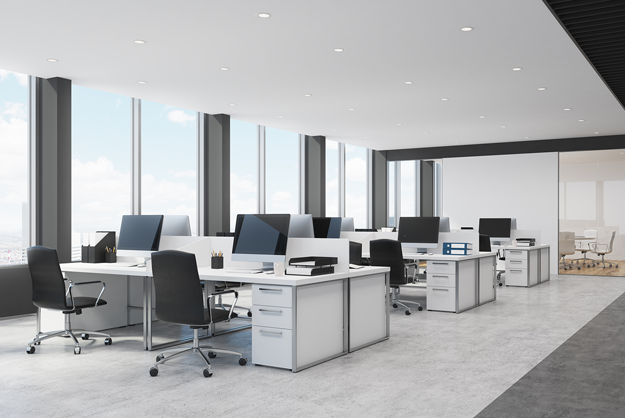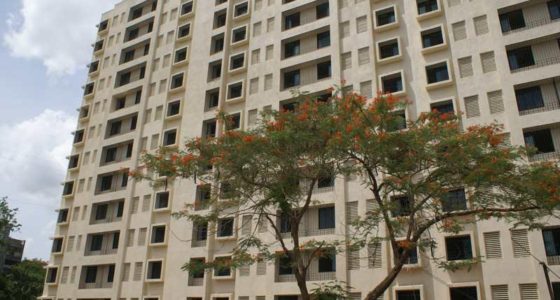Net absorption in office for the first nine months of 2022 (Jan-Sep 2022) is at a three-
year high of 30.3 million sq ft
By Varun Singh
The net absorption for India’s Office space for the first nine months of 2022 (Jan-Sep 2022) stood at a three-year high of 30.3 million sq ft, backed by strong supply completions with healthy pre-commitments. On a Quarter-on-quarter (Q-o-Q) basis as well, net absorption for the July-Sep quarter was up by 11% Q-o-Q and recorded at 9.86 million sq. ft, according to JLL’s Office Market Update-Q3, 2022.
Net absorption is calculated as the new floor space occupied less floor space vacated.
Floor space that is pre-committed is not considered to be absorbed until it is physically
occupied.
Gross leasing refers to all lease transactions recorded during the period, including
confirmed pre-commitments, but does not include term renewals. Deals in the discussion
stage are not included.
Among the four metros, Hyderabad led the way with a 31% share of net absorption, with
Mumbai pushing Bengaluru to the third spot, followed by Delhi NCR. These four cities
combined for an 83% share of net absorption in the quarter.
Bengaluru leads in terms of 9-month net absorption levels, followed by Hyderabad and
Mumbai. All the top seven cities have seen the 9-month net absorption for 2022 at much
higher levels compared to the corresponding period of 2021. On a Pan-India basis, net
absorption is also up by 107% Year-on-Year (Y-o-Y) for the nine-month period. In fact, the
Jan-Sep 2022 net absorption is also 90% of the corresponding number for 2019, the pre-
COVID year which also recorded the highest ever net absorption for the full year.
With the return to work in full flow and office occupancies rising, rising net absorption is
indicative of the office remaining central to occupier workplace strategies.
Office net absorption records a 2.07X growth on YTD basis
| Q2 2022 (mn sq ft) | Q3 2022 (mn sq ft) | Q-O-Q Growth (%) | Q1-Q3 2021 (mn sq ft) | Q1-Q3 2022 (mn sq ft) | YTD (Jan-Sep) Change (%) | |
| Bengaluru | 4.46 | 1.71 | -62% | 5.41 | 7.84 | 45% |
| Chennai | 0.53 | 0.54 | 2% | 1.18 | 2.28 | 92% |
| Delhi NCR | 1.32 | 1.61 | 22% | 3.11 | 4.27 | 38% |
| Hyderabad | 0.75 | 3.06 | 310% | 1.15 | 7.22 | 527% |
| Kolkata | 0.19 | 0.10 | -45% | 0.10 | 0.48 | 370% |
| Mumbai | 1.33 | 1.83 | 37% | 1.83 | 4.60 | 152% |
| Pune | 0.27 | 1.01 | 276% | 1.85 | 3.57 | 93% |
| Total | 8.85 | 9.86 | 11% | 14.63 | 30.26 | 107% |
Gross leasing for the period between Jan-September 2022 is up 1.9X Y-o-Y. The 9-month gross leasing activity is higher by 88% over the same period of 2021 and 13% over the same period of 2020, marking the first full 9 months. Mumbai and Delhi NCR led the gross leasing numbers for Q3 2022 accounting for 26% and 23%, respectively. Delhi NCR and Bengaluru are the two biggest office markets in terms of Jan-Sep 2022 gross leasing activity followed by Mumbai. These three markets account for over two-thirds share of occupier activity in the first 9 months of the 2022 calendar year.
Gross leasing activity up by 88% during Q1-Q3 2022 compared to Q1-Q3 2021
| Q1-Q3 2021 (mn sq ft) | Q1-Q3 2022 (mn sq ft) | YTD (Jan-Sep) Change (%) | |
| Bengaluru | 4.0 | 8.2 | 106% |
| Chennai | 2.1 | 4.0 | 90% |
| Delhi NCR | 5.0 | 9.6 | 91% |
| Hyderabad | 1.8 | 3.1 | 74% |
| Kolkata | 0.1 | 0.4 | 317% |
| Mumbai | 3.6 | 6.4 | 79% |
| Pune | 2.3 | 3.7 | 64% |
| Total | 18.9 | 35.5 | 88% |
“Tech continues to remain the dominant occupier segment accounting for 27% of market share, although down from 33% Q-o-Q. Although the total space leased by Flex operators is down 45% Q-o-Q, this segment has a market share of 14%. Aided by a strong return to office, the BFSI segment has seen the share of gross leasing go up to 16% this quarter compared to 10% in the last quarter,” said Rahul Arora, Head, Office Leasing Advisory, India, JLL.
Enterprises leased ~30,000 seats in flex, down by around 22% from the previous quarter. Demand for flex spaces continues to remain very strong and the corresponding growth by flex operators is likely to continue driven by increasing demand for managed space solutions from occupiers. The 9- month flex seat take-up is already at an all-time peak of ~95,000 seats, with the year likely to end more than 120,000 seats. The annual flex seat take-up in 2022 alone is likely to equal or surpass the combined total of the pre-COVID years of 2018 and 2019 as well as the past two years 2020 and 2021.
“Over the next 12 months, around 50-55 million sq. ft is lined up with average pre-commitment levels of 11-12%. For assets owned by institutional landlords, pre-commitment rates stand at 24% with their share being 30% of the upcoming supply. Space requirements currently active are around 36-38 million sq ft, the same over the past one year, indicating the robustness of demand pipeline. We may, however, likely see some delayed decision-making as businesses look at macroeconomic signals before committing capital for new offices. India as an outsourcing/offshoring destination is expected to remain the office market of choice given still affordable real estate costs, the large talent pool and the already existing ecosystem,” Dr. Samantak Das, chief economist, and head research and REIS, India, JLL.
Quarterly supply at 11.97 million sq ft; up by 8% Q-o-Q
New completions were recorded at 11.97 million sq. ft in Q3 2022, up by 8% Q-o-Q. For Jan-September 2022, new completions stand at 43.4 million sq. ft, higher than the corresponding periods for the last three years. Completions in Q3 2022 were headlined by Hyderabad and Delhi NCR which combined for a 60% share of the quarterly supply additions. Almost 46% of the new supply infusion was pre-committed in Q3 2022. A significant part of this came from new completions in Hyderabad, where 57% of the quarterly supply was pre-committed. Bengaluru saw an 89% pre-commitment rate in its new completions. Chennai and Delhi NCR also saw pre-commitment rates of 55% and 34%, respectively in their new completions.
Completions headlined by Hyderabad, Delhi NCR and Mumbai
| Q2 2022 (mn sq ft) | Q3 2022 (mn sq ft) | Q-O-Q Growth (%) | Q1-Q3 2021 (mn sq ft) | Q1-Q3 2022 (mn sq ft) | YTD Growth (%) | |
| Bengaluru | 4.38 | 1.62 | -63% | 12.79 | 10.63 | -17% |
| Chennai | 0.00 | 1.06 | NA | 0.87 | 3.46 | 297% |
| Delhi NCR | 1.41 | 3.55 | 152% | 8.16 | 6.47 | -21% |
| Hyderabad | 4.61 | 3.66 | -21% | 6.78 | 13.04 | 92% |
| Kolkata | 0.00 | 0.00 | NA | 0.00 | 0.27 | NA |
| Mumbai | 0.70 | 1.70 | 143% | 6.30 | 4.38 | -30% |
| Pune | 0.00 | 0.38 | NA | 1.65 | 5.19 | 214% |
| Total | 11.10 | 11.97 | 8% | 36.55 | 43.44 | 19% |
Vacancy stable
The vacancy has remained at 16.0%, stable q-o-q, and expected to remain sticky within this range of 16-17%. The future supply pipeline is strong, and while leasing momentum is slightly lagging, strong pre-commitments in the upcoming projects will support the net absorption projection and keep vacancy within range.
| City | Overall City Vacancy % | Q-O-Q Change in City level vacancy (bps) | Core office sub-market Vacancy % |
| Bengaluru | 11.0% | 20 bps | SBD ORR – 6.6% |
| Chennai | 10.3% | 60 bps | SBD OMR – 1.9% |
| Delhi NCR | 28.5% | 70 bps | Prime Gurgaon – 13% |
| Hyderabad | 18.5% | -10 bps | Hitec City – 9.6% |
| Kolkata | 22.2% | -40 bps | Salt Lake – 21.1% |
| Mumbai | 14.3% | -30 bps | BKC Core – 5.3% |
| Pune | 7.5% | -80 bps | SBD East – 6.2% |
Looking Ahead
Technology occupiers are expected to remain key to driving space take-up moving ahead as well. Policies around manufacturing are bearing fruit and the share of manufacturing firms is also expected to rise going forward. Flex’s emergence as a partner of choice for future and medium to long-term space needs will keep the momentum going in this occupier segment.
We will keep a close eye on developing global headwinds which may stifle demand and in the short-term lengthen decision-making from occupiers as they look for direction from their corporate HQs and evolving macroeconomic situation in their home countries. For domestic outsourcing firms, negotiation in new contracts could impact bottom line and thus keep expansion activity limited.









